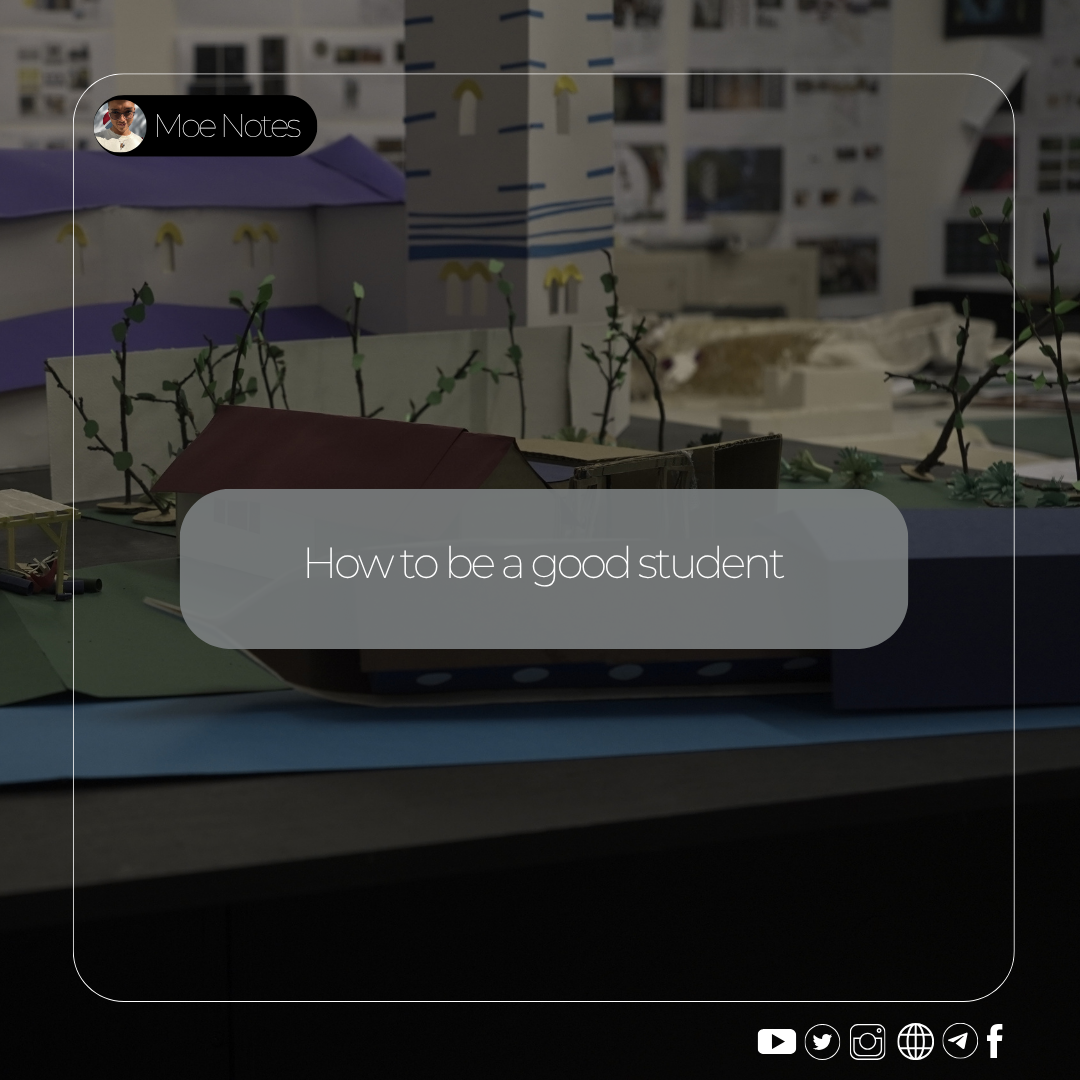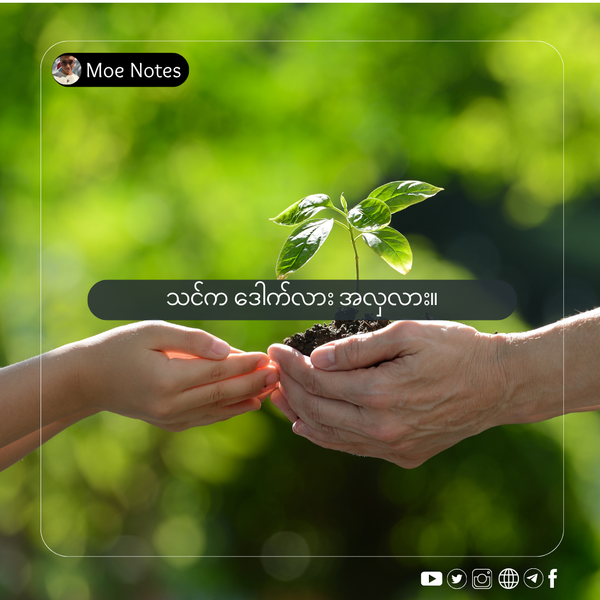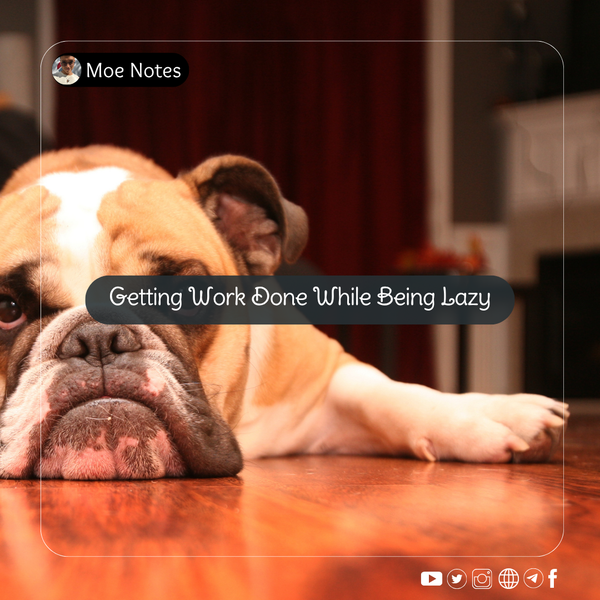How to Be a Good Student

This article is available in [Burmese]
I’m not going to write about things like “how to wake up early” or “how to take notes.” You’ve probably seen those topics everywhere. Today, let’s have a practical discussion. How do you become a good student?
“Good student” is just a simple term. What I mean is broader: “Excelling in an academic or professional field, being able to achieve good results, and ultimately, contributing positively to the world.” A good result could mean getting full marks on an exam. But it could also mean that while your grades in university aren’t as high as others, you’ve gathered a wealth of practical experience outside of your studies. That person is also a “good student.”
So, how do we become that person?
The “You’re So Smart” Trap
“My child is smart. They can keep up with their studies.”
We’ve all heard parents praise their children in this way. My parents were the same. But we need to ask ourselves a question: Are we really that “smart”?
- How do you solve a problem when you encounter one? Do you panic immediately, or do you think systematically to find a solution?
- How quickly do you recover from a sad event? How do you provide strength to those around you?
- How do you react when you don’t get something you want—an award, a job, an opportunity? Do you dwell on the failure with regret, or do you learn from it and bounce back quickly?
People tend to measure themselves against those in their immediate surroundings. They compare themselves, and if they come out on top, they label themselves a “good student.” It’s good to be satisfied with yourself, but it’s dangerous to stop there and stop trying.
Let’s say you are the most intelligent person in your environment. But one day, you arrive at a top university where everyone is smart. Suddenly, you’re just average. They can do what you can do; they are as smart as you are. For someone who has continually drawn strength from the label “smart,” this can feel like losing their core identity.
At this point, the most important thing is no longer "intelligence” but “effort.”
What is Effort?
“Effort” isn’t just about pulling all-nighters. It’s about building an entire lifestyle that supports your goals.
- Going to bed early, waking up early, and getting your work done on time is also an effort.
- Taking care of your health and eating with discipline is also an effort.
- Avoiding unnecessary late nights and steering clear of alcohol is also an effort.
- Avoiding messy romantic entanglements that cause mental distress is also an effort.
In other words, self-care is the foundation of being a good student.
The Difference Between Self-Care and Neglect
Let me give you an Example using a single day.
The Morning of Someone Who Practices Self-Care:
Because there were no mental burdens, they slept well. They wake up early, feeling refreshed. They practice personal hygiene and do their skincare routine. Their body feels clean and fresh, so their mind is clear. They take the time to prepare and eat a nutritious breakfast, giving them the energy they need for the day. A well-cared-for body is like a well-maintained car; it will take you where you want to go smoothly. When it’s time to study, they can focus well and generate new ideas easily.
The Morning of Someone Who Neglects Themselves:
They wake up carrying the stress from the night before, often late in the day, feeling groggy and irritable. Their room is a mess, and they feel sluggish. Their work is unfinished. They eat whatever is convenient, so their body lacks energy and their mind feels foggy. Trying to study in this state is nearly impossible.
You Can’t Study Every Single Day
This is the truth. No matter how smart you are, you can’t be 100% focused every day. There will be days when, for no reason at all, your brain doesn’t want to work. On days like that, forcing yourself to study is pointless.
The best thing to do is to give yourself a break. Take a nap, go for a walk, hit the gym, or cook a meal. The key is to create a change of scenery or activity. If you struggle to focus at night, try going to sleep early. You can start fresh the next morning with a clearer mind.
A Philosophy Deeper Than Studying
The internet is full of “study hacks” like Spaced Repetition and the Feynman Technique. But for someone in a field like architecture and design, these methods don’t feel very practical. We’re not memorizing facts; we’re synthesizing complex ideas and applying them in the real world. That’s why the most effective methods I’ve found aren’t study hacks, but shifts in perspective and lifestyle.
1. Learning Through Application: Instead of just reading and memorizing a theory from a book, I immediately try to apply it to a real project. Sometimes, I don’t just do enough to “finish” a task; I try to do “a little bit more.” This “little bit more” can be time-consuming and sometimes feels like a self-destructive habit, but in the long run, it’s the bridge that transforms mere understanding into true mastery.
2. The Third-Person Perspective: This is a mental tool I use constantly. I view my life and my struggles not as the main Character, but as a third person watching from the sidelines. When I do this, I can set aside my immediate emotions and see things more objectively. Questions like, “Who am I spending my time with and what am I doing?” or “Are my daily actions aligned with my long-term goals?” become much clearer to answer.
3. Mindful Rule-Breaking: Being disciplined doesn’t mean unthinkingly following all the rules; it means being mindful of them. Proper discipline is knowing which rules are essential and which rules should be broken for the sake of your creativity or mental health. For Example, instead of following the “rule” that you must pull an all-nighter for a deadline, the mindfully broken rule is, “If I sleep now, I will have better ideas tomorrow morning.”
4. Seeing a Goal Bigger Than Passing an Exam: Ultimately, an exam is just a milestone on a journey. The real goal is the kind of person you become along the way. The challenges you face and the effort you expend are the bricks that make your Character Exam scores may be forgotten one day, but the Character you’ve built will be your faithful life companion.
My Struggle and Turning Point
During my first year, I made numerous mistakes. My relationships with friends and family were messy, my studies were a mess, and my part-time job was a mess. Everything was chaotic. When I started my second year, I made a decision: “I’m quitting my part-time job. I’m going to focus only on my studies.”
But that decision alone didn’t change everything instantly. I still had my old bad habits and insecurities. No matter how hard things got, I couldn’t find the motivation to try. I was still waking up late and hating my studies. I felt lost in the nights, all alone.
The only thing I held onto at that time was a single thought: “I’m not going to think about it anymore. I’m just going to follow my daily routine, no matter what.”
Whether I felt like it or not, I went to the gym in the morning. I ate my meals at regular times. When it was time to study, I sat down and got to work. If I had to go to class, I went. If I had to meet my tutor and get criticized, I just took it in stride.
Conclusion: A System Will Save You
And as the days and nights passed, a surprising change began to happen. Slowly, everything started to improve. It wasn’t that the work got easier; it was that I got stronger. That daily routine, that “system,” had gradually rebuilt me.
And that is the final answer I want to give. To be a good student, you don’t need to be “smart.” You need to build a solid system that will push you toward your goals.
Your system might not be as dedicated to the gym as mine. It could be meditating, reading, or taking a half-hour walk every day. The main thing is to establish a routine that takes care of both your mind and body, one that will keep you moving forward even on the most challenging days, and to practice it until it becomes a habit.
Being a “good student” is not an innate quality. It is the result of the small, correct habits you practice every single day.



